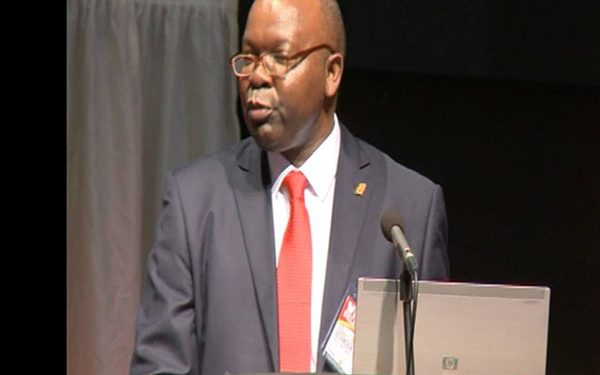Embassies are classified under what government terms as ‘public’ entities not ‘productive’ entities.
Public institutions are perceived as consumers of government funds and productive entities generate the funds.
And usually the public entities are underfunded by Ministry of Finance. All Uganda’s embassies across the world are presided over by Ministry of Foreign Affairs with its headquarters in Kampala and headed by Minister Sam Kutesa.
However, embassies have gradually turned into productive institutions by engaging in income generating projects in the foreign countries and further monitor Ugandans in those foreign lands.
For example, embassies lobby for jobs for Ugandans, lobby for higher administrative positions for Ugandans in intergovernmental organizations and also source for investors to invest in Uganda.
However, most embassies outside Uganda have been incapacitated and are financially bleeding.
A case in point is Ugandan embassy in Riyadh, Saudi Arabia which government of Uganda has abandoned and staff left to hustle for survival.
The head of Mission is Ambassador Isaac Ssebulime.
Deplorable condition
Uganda Association of External Recruitment Agencies (UAERA) Chairman Baker Akantambira, who travelled to Saudi Arabia to assess the condition of migrant workers observed that the Embassy is in dire state and needs urgent government intervention.
UAERA is an association that brings together all legally registered labour externalisation firms.
Mr Baker observed that the Mission has accumulated rent arrears. There is no hope for renewal.
Medical bill accumulated and now the embassy has no credit facility not even health assurance.
The embassy staff have resorted to pulling their own personal resources to send critical cases to hospital.
Migrant workers who rushed to the embassy for help have been sleeping outside for two weeks now.
The job order processing system is down for lack of money to renew the licenses and servicing.
If labour companies want job orders to be processed they must finance the embassy.
Ambassador Ssebulime had already written to Ministry of Gender to halt this business until government funds the embassy.
But shockingly government earns $1.4B from labour externalization business and most of the business orders arise from Saudi Arabia.
Through UAERA, labour companies in Uganda hard started contributing $300 to fund the Mission.
Blind eye?
It remains a fact that government of Uganda earns $1.4 billion from labour exporting business and Saudi Arabia remains one of the bigger markets for Ugandan migrant workers.
The embassy staff wondered why government of Uganda couldn’t use some of this money to fund the embassies.
Ministry of Finance late last year issued a notice warning all government bodies against making unnecessary expenditure because government had run out of cash.
This warning affected the embassies.
A source at Foreign Affairs Ministry confirmed that Ministry of Finance halted funding of embassies.
“It is true government is not releasing funds until further notice. That is why most of our embassies are in cash crisis. However, our embassies have been making their own money. Why can’t government use this money to fund them?” the source said, asking not to be named fearing to be reprimanded.
This source said that for the case of Saudi Arabia embassy, the Foreign Ministry is well aware of its deplorable condition but “can’t do anything.”
The source further said that Uganda’s mission in Saudi Arabia oversees 5 countries in the Middle East.
“That embassy is overstretched but at the same time it is underfunded. So how do you expect the staff their to do work?” asked the source.
By press time Ambassador Isaac Ssebulime had not responded after we contacted him for a comment.
The official spokesperson of Foreign Affairs Ministry who is the Permanent Secretary (PS) Ambassador Patrick Mugoya didn’t respond to our repeated calls.
With all businesses in Uganda largely affected by COVID-19, hopes are in the labour export in which government benefits twice; creating job opportunities for its citizens and earning foreign exchange to support the economy.





